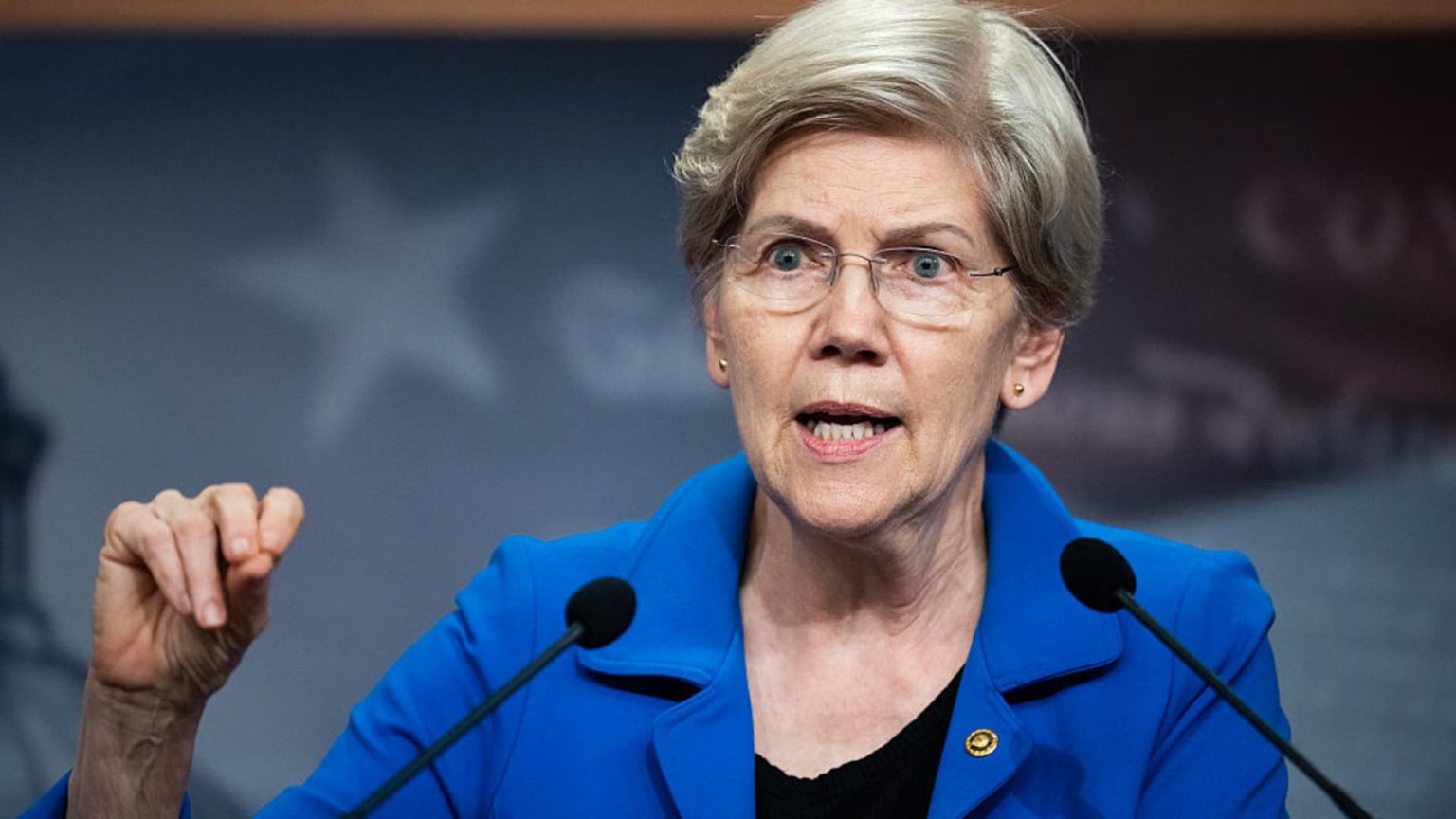As President Donald Trump’s administration continues to implement a heavy tariff agenda, a coalition of 47 Democratic lawmakers is raising alarms about potential corruption. Led by Sen. Elizabeth Warren of Massachusetts and several prominent representatives, the group is pushing for accountability from key officials regarding the administration’s handling of tariff exemptions. They argue that the present tariff strategy echoes past practices where financial favoritism for political allies took precedence over fair trade policies, ultimately threatening the integrity of the economic landscape.
| Article Subheadings |
|---|
| 1) Democratic Concerns Over Trump’s Tariff Policies |
| 2) Leading Voices in the Opposition |
| 3) The Challenge of Limited Congressional Authority |
| 4) Allegations of Corruption and Self-Dealing |
| 5) Calls for Accountability and Transparency |
Democratic Concerns Over Trump’s Tariff Policies
The recent letter signed by nearly 50 Democratic lawmakers articulates significant apprehensions regarding President Trump’s trade policies. The unitary concern revolves around the potential for misuse of tariff exemptions that could disproportionately benefit individuals with close ties to the administration. This concern is not isolated to just current initiatives; it harks back to Trump’s prior term where similar trade practices were perceived as a mechanism for advancing personal and political interests rather than adhering to fair trade principles. The lawmakers referenced in their correspondence the risks posed by allowing administration officials to exercise discretion over import rates and exemptions, hinting at a broader pattern of using tariffs to influence the political fabric of the nation.
Leading Voices in the Opposition
Pioneering the initiative is Sen. Elizabeth Warren, a prominent figure in the conversation surrounding economic reform and transparency. Joining her are Reps. Judy Chu and Linda Sánchez of California, alongside other notable figures such as Sen. Bernie Sanders and Reps. Ayanna Pressley and Jared Huffman. Collectively, they represent a spectrum of Democratic perspectives, all unified by a profound concern over the ethical dimensions of Trump’s tariff strategy. Their proactive stance includes addressing the responsibilities of Commerce Secretary Howard Lutnick, Treasury Secretary Scott Bessent, and Trade Representative Jamieson Greer in providing clarity concerning how the administration intends to avoid corruption and ensure ethical governance in trade policy.
The Challenge of Limited Congressional Authority
While the Democratic Party currently holds a minority position in both houses of Congress, limiting their legislative influence, the letter exemplifies their determination to shed light on perceived malpractices within the administration. The ability of minority lawmakers to convene formal hearings or issue subpoenas is severely restricted, thus diminishing their leverage. Nonetheless, Democrats have signaled their intention to use the written word as a means of keeping the pressure on the administration. The letter not only serves as a formal communication but also as a harbinger of greater scrutiny over economic policy, showing that even without majorities, lawmakers can still advocate for accountability and legislative oversight.
Allegations of Corruption and Self-Dealing
The allegations made in the letter underscore a mounting sense of urgency regarding possible underhanded dealings in import tariffs. Democrats argue that Trump’s earlier term demonstrated a tendency to wield tariff policies as instruments of favoritism—rewarding loyalists while penalizing political adversaries. By referencing specific cases, including the recent easing of tariff restrictions on smartphones and electronics that notably benefitted major corporations like Apple, the lawmakers assert that current practices could foster an environment where corruption thrives. They highlight that such exemptions could lead to a landscape where financial and political favors dictate policy, thereby undermining the fundamental tenets of democratic governance.
Calls for Accountability and Transparency
In their communication, the Democratic lawmakers have made a clear demand for transparency by calling upon the aforementioned cabinet members to provide a detailed account by April 29. They are specifically asking for insights into how the administration will address potential abuses of power concerning tariff exemptions. This request illustrates a commitment to holding the Trump administration accountable, emphasizing that the integrity of U.S. trade agreements is non-negotiable and must be safeguarded from personal interests. The insistence on a prompt response demonstrates the urgency lawmakers feel regarding this issue, positioning it as a critical part of their resistance to the current administration’s economic policies.
| No. | Key Points |
|---|---|
| 1 | A coalition of 47 Democratic lawmakers is raising alarms about corruption risks in Trump’s tariff-heavy trade policies. |
| 2 | The letter emphasizes concerns over the misuse of tariff exemptions favoring political allies. |
| 3 | Key figures, including Sen. Elizabeth Warren and Reps. Judy Chu and Linda Sánchez, lead the opposition. |
| 4 | Democrats face limitations in their ability to hold formal hearings due to their minority status in Congress. |
| 5 | The lawmakers are demanding accountability from the administration regarding potential tariff abuses. |
Summary
The growing concerns expressed by Democratic lawmakers regarding President Trump’s tariff policies point to a critical moment in U.S. economic governance. The letter reflects a unified stance among party members against potential corruption in trade practices, asserting the need for transparency and accountability. As lawmakers embark on this advocacy despite their minority status, they signal an unwavering commitment to preserve the integrity of American trade relations in the face of administrative challenges and potential ethical lapses.
Frequently Asked Questions
Question: What are the main concerns regarding Trump’s tariffs?
Lawmakers are concerned that Trump’s tariff policies may create opportunities for corruption and self-dealing, favoring political allies and undermining fair trade standards.
Question: Who are the key figures advocating against these tariff policies?
The effort is led by Sen. Elizabeth Warren, along with Reps. Judy Chu, Linda Sánchez, and other prominent Democratic lawmakers.
Question: What actions are the Democrats seeking from the Trump administration?
Democrats are requesting detailed plans from key officials on how they will prevent misuse of tariffs and maintain transparency around tariff exemptions by April 29.


